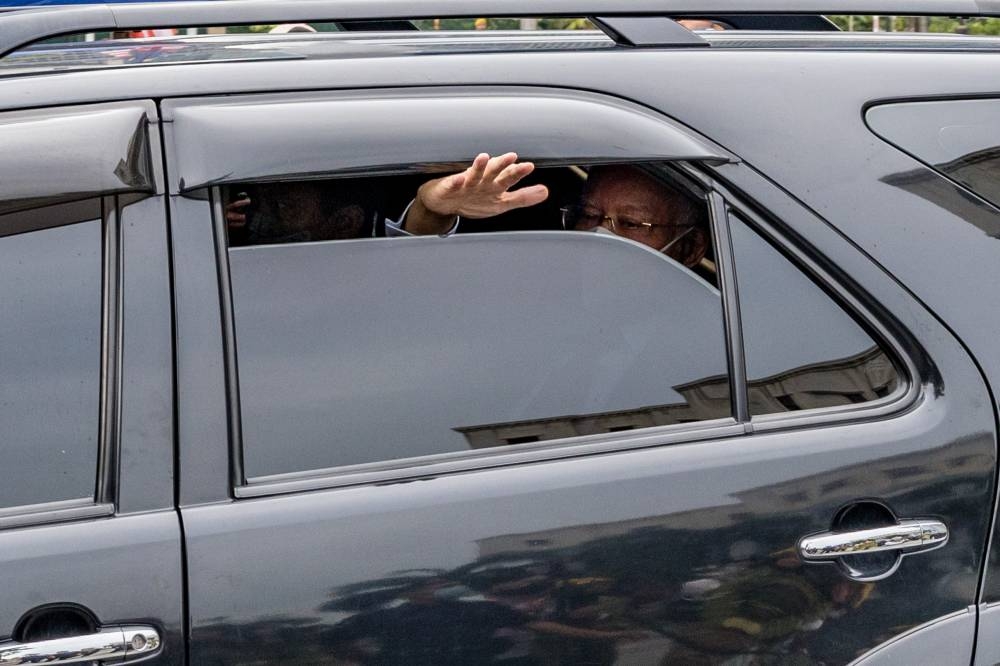AUGUST 28 — After the decision made by the Federal Court, Najib Razak, the former Prime Minister has two avenues available to him and one of which is to seek a Royal Pardon.
The power to grant a royal pardon is provided under Article 42(1) of the Federal Constitution which states:
‘the Yang di-Pertuan Agong has the power to grant pardons, reprieves, and respites in respect of all offences which have been tried by court-martial and all offences committed in the Federal Territories of Kuala Lumpur, Labuan, and Putrajaya, and the Ruler or Yang di-Pertua Negeri of a State power to grant pardons, reprieves, and respites in respect of all other offences committed in his State’
However, this is not an automatic right. Thus, to seek a royal pardon, it needs to be initiated with a petition practicable soon after his conviction, and the second petition in three years from the date of conviction and thereafter two-year interval can be initiated under special circumstances that are brought to the notice of the YDPA, as stated under Regulation 113 of the Prison Regulations 2000.

Moving on, the pardons board consists of, (a) the Attorney-General of the Federation, (b) the Chief Minister of the State or the Minister of the Federal Territory (PM), and (c) not more than three members appointed by the Rulers or Pertua Negeri, as stated under Article 42(5) of the Federal Constitution.
Thus, before considering granting pardon the YDPA must consult and be advised by the Pardons Board and also consider the written opinion by the AG, this was recognised in the case of Superintendent of Pudu Prison v Sim Kie Chon [1986] 1 MLJ 494. This case also did highlight, that granting royal pardon is a ‘royal prerogative of mercy.
There have been cases where royal pardon was granted. In the case of Dato Moktar Hashim v PP, the former culture, youth, and sports minister was sentenced to death for murder in 1983 but was later commuted to life imprisonment in 1991, followed by a full royal pardon. This was also seen in the case of Dato Seri Anwar Ibrahim, who was granted a full pardon and was able to stand for election.
Article 48(1)(e) disqualifies the Parliament member if he is sentenced to at least one year in prison and has not received a free pardon. Article 48(3) states that one is barred from becoming MP for five years if there is no royal pardon.
With that being said, the discretion to grant the petition for clemency, by the YDPA/Rulers as provided under Article 42(1) or (2). Thus, before granting one, the YDPA/Rulers will look at the external factors when reaching a decision, and it is not the decision as bound by the courts. In the case of Public Prosecutor v Lim Hiang Seoh [1979] 2 MLJ 170, as cited in the case of Juraimi bin Husin v Pardons Board, State of Pahang & Ors [2002] states that:
“When considering whether to confirm, commute, remit or pardon, His Majesty does not sit as a court, is entitled to take into consideration matters which courts bound by the law of evidence cannot take into account and decide each case on ground of public policy; such decision are a matter solely for the executive. We cannot confirm or vary them.......”
However, in the case of Mohd Khairul Azam bin Abdul Aziz v Lembaga Pengampunan Wilayah Persekutuan & Anor [2020] MLJU, it was held that granting pardon is not a royal prerogative but an exercise of executive power by the High Court, which was then overturned by the Court of Appeal.
Thus, the standing position will be the pardon to grant pardon is a royal prerogative, and is not justiciable.
In short, it is up to the YDPA/ Ruler to grant or not to grant pardon. The power of mercy of a high prerogative is exercisable only by the YDPA/Ruler who acts with the greatest conscience and care without fear of influence from any quarter.
* Matilda George is a final year law student.
* This is the personal opinion of the writer and does not necessarily represent the views of Malay Mail.





















